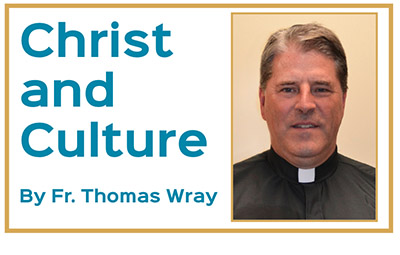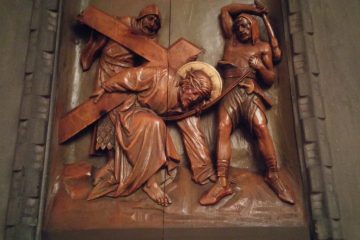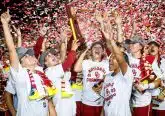March Madness: Coaches, Players, and Disciples
 Like it or not, March Madness Basketball is very serious business indeed. Just ask your nearest UC, UD, UK or Xavier fan. The NCAA Tournament is an $11 billion-per-year industry. People bet more dollars on March Madness than on the Superbowl.
Like it or not, March Madness Basketball is very serious business indeed. Just ask your nearest UC, UD, UK or Xavier fan. The NCAA Tournament is an $11 billion-per-year industry. People bet more dollars on March Madness than on the Superbowl.
But as St. Paul taught in the book of Acts, by looking deeply into the secular culture we can at times encounter Christ (Acts 17.22). So here are a few reflections on the March Madness juggernaut.
Catholic Bracketology update: 3 Catholic schools in Sweet 16
First, let us remember that for-profit sports are nothing new in human history. The Greeks were the first to professionalize athletics. The founders of the Olympics went on to invent the sports-as-entertainment industry. Sportsmanship and fan behavior declined as salaries of athletes increased.
St. John Chrysostom, bishop of Constantinople (d. A.D. 407), lamented that his people were going to the races and attending games on Good Friday and Holy Saturday. At the fascist fringe of sports-worshipping history in the 20th century was Nazi Germany. The Third Reich banned the teaching of religion in public schools– and replaced it with a state-enforced sports curriculum.
Does any of this seem familiar to us?
Second, in spite of all these corruptions, God continues to use sports as a worthy transmitter of the Gospel. At the heart of every authentic sporting event is a human being. Because the people who play them have two natures, the games themselves have two natures, one outward and visible, the other inner and invisible. Sports are about wins and losses, mechanics and playbooks, to be sure. But they are also about the inner qualities of desire, perseverance, trust and respect. It is precisely this dual nature of sports that that captures our imagination as fans. The Catholic Church therefore teaches that sports are part of a balanced vision of human life (CCC 2289).
Third, consider the complicated yet beautiful player-coach relationship. Deceased author Pat Conroy’s best-selling book My Losing Season depicts his troubled relationship with his college basketball coach. Even that traumatic experience was ultimately transformed.
Network sports analysts describe the players of good coaches as students. Players of great, game-changing coaches are often called disciples.
This is the exact word the Bible uses to describe the earliest followers of Jesus. Following the example of Mary, the first disciple, we are to follow them in saying give “yes” to Jesus. Our word disciple is derived from the Greek word mathetes. From this we derive English word, mathematics. Thus a disciple is one who applies the lessons of a master to solve the problems of their life.
May I suggest that during Sweet 16 and the Final Four, you take a spiritual
“time out? ” In light of this Easter Season and these key biblical passages on discipleship, ask the Holy Spirit to help you see more clearly whose teachings are you really following in life? Whose disciple are you?
Lastly, another great way to deepen your appreciation of the Catholic spirituality of sports is to come to the SportsLeader Sports Ministry Conference at the Athenaeum at the end of this month. Check it out here!
Welcome to Christ and Culture. Here Father Thomas Wray will explore connections between Jesus Christ and his people through the lens of pop culture.
Previous Christ and Culture installments
Brooklyn: Homesickness and the Lenten journey
The Super Bowl and the Episcopalian Divorce













